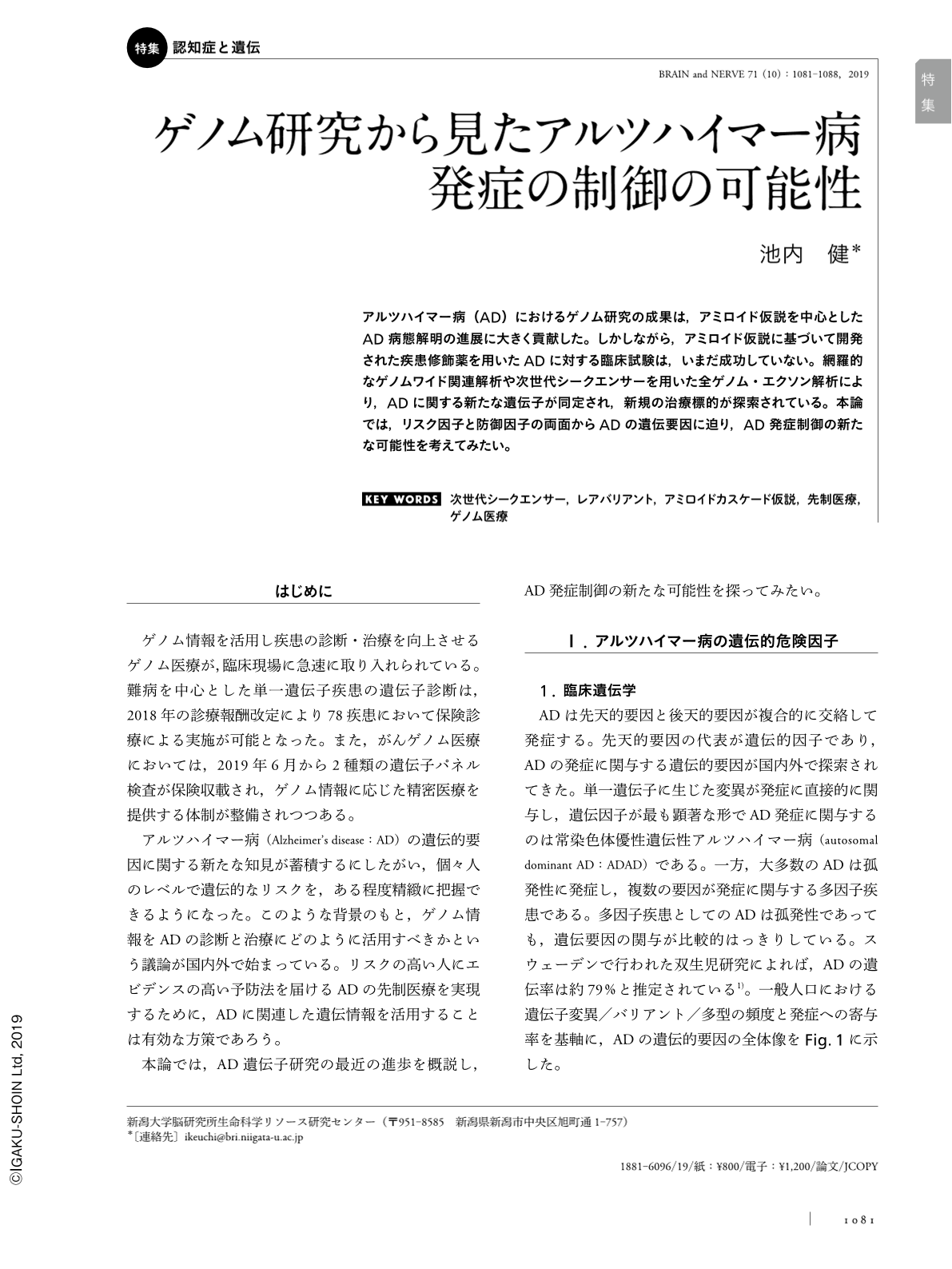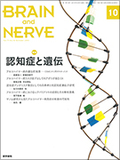Japanese
English
- 有料閲覧
- Abstract 文献概要
- 1ページ目 Look Inside
- 参考文献 Reference
アルツハイマー病(AD)におけるゲノム研究の成果は,アミロイド仮説を中心としたAD病態解明の進展に大きく貢献した。しかしながら,アミロイド仮説に基づいて開発された疾患修飾薬を用いたADに対する臨床試験は,いまだ成功していない。網羅的なゲノムワイド関連解析や次世代シークエンサーを用いた全ゲノム・エクソン解析により,ADに関する新たな遺伝子が同定され,新規の治療標的が探索されている。本論では,リスク因子と防御因子の両面からADの遺伝要因に迫り,AD発症制御の新たな可能性を考えてみたい。
Abstract
During the past 20 years, genome studies for Alzheimer's disease (AD) have elucidated the pathogenesis of AD including the amyloid hypothesis. However, clinical trials of the disease modifying drugs for AD developed based on the amyloid hypothesis have been largely unsuccessful. New genes associated with AD have been identified through comprehensive genome analyses such as genome-wide association studies and whole genome/exome sequencing using next-generation sequencers. With these efforts, new therapeutic targets to AD have been explored. This review summarizes the genetic make-up of AD in terms of both risk and protective factors from the viewpoint of novel therapeutic targets to AD.

Copyright © 2019, Igaku-Shoin Ltd. All rights reserved.


